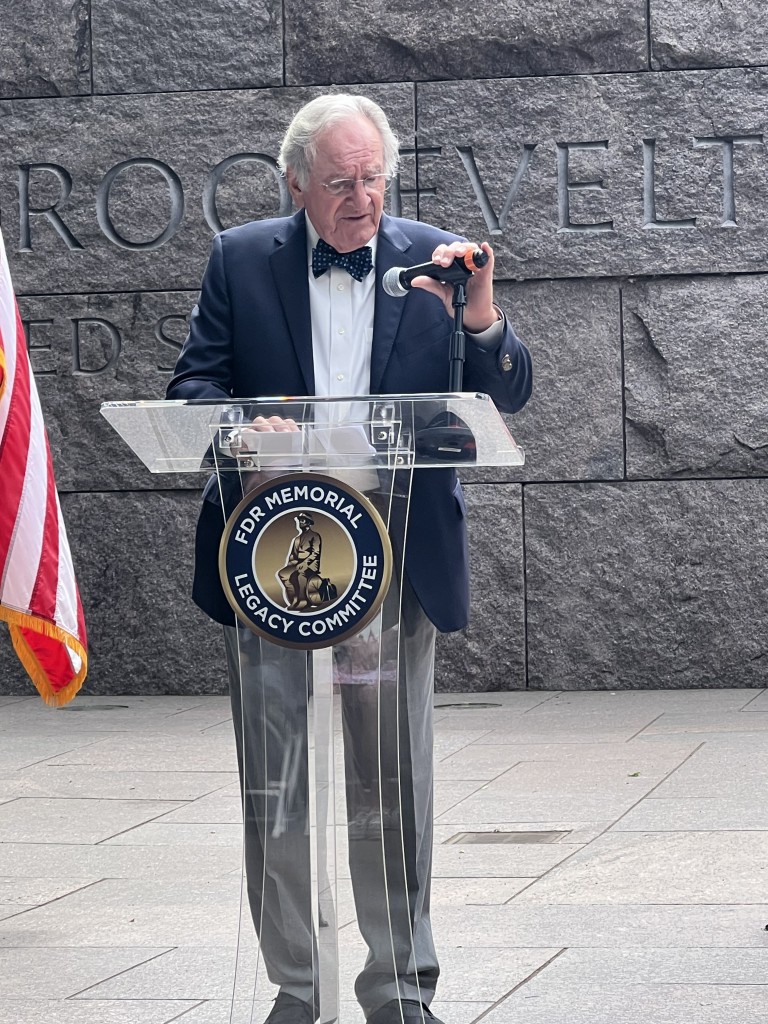This week marks the 32nd Anniversary of the Americans with Disabilities Act (ADA). It has been 32 years since the ADA was signed into law. Yesterday, I had the opportunity to participate in a roundtable event with former Senator Tom Harkin and Mr. Mick Malec, CEO of enGen that was hosted by the American Association of People with Disabilities (AAPD).
First, I want to send a shout out to AAPD for holding such a tremendously important event. It is critical in today’s environment that we come together as a community to discuss the pivotal actions that need to be taken to address on-going civil rights issues for people with disabilities.
Senator Harkin, who is an advocate for the disability community and a friend of mine, shared his memory of the signing of the ADA. He remembers it being a gorgeous day with the sun shining, but not too hot. The White House lawn was filled with the largest group he had witnessed for an event like this. There was exuberance in the air, and a feeling of “finally, finally” that resonated with the disability community as President Bush signed the ADA.
Since the signing of the ADA, there have been many changes. Public spaces are more accessible for people with disabilities, curb cuts are available, buses have lifts. Senator Harkin reflected on how attitudes have progressed since the ADA. Prior to this time, for centuries, people with disabilities were “looked on as less than human.” They were hidden, dismissed, and institutionalized. They were seen as objects of pity and shame. The ADA has had impacts on this attitude and the barriers it created. People with disabilities are more a part of our communities, they are our colleagues, our neighbors, our politicians – they are everywhere and no longer hidden away.
Senator Harkin offered insight into some of the critical areas of focus for our community. No surprise, employment was one of the topics he referenced. Additional areas of focus included transportation, telecommunications, and housing. To date only 20 states have made subminimum pay for individuals with disabilities illegal – meaning that in more than half of this country, a person can be paid less than any other citizen because they have a disability due to Section 9 allowances.
Mr. Malec shared enGen’s commitment to furthering the employment of people with disabilities. Building on Senator Harkin’s comments about attitudinal barriers, Mr. Malec offered the perspective that hiring people with disabilities isn’t about pity. When someone offers the skills your company needs and demonstrates a willingness to work hard and get the job done then that is the person you want – it just makes good business sense.
Senator Harkin shared the message that there is a whole generation out there now who have been born into a world where the ADA has always been there to protect their rights. This generation, the ADA generation, don’t remember a time when they did not have civil rights protected by law. In this environment, there is a worry about backtracking among disability community leaders.
“Some people may think we’ve done enough, but we must not rest – we must not allow people with disabilities to be put back into the background,” Senator Harkin explained. The Supreme Court has historically been hostile, more often than not, to the disability community. This can be seen in previous rulings that attempted to limit the power of the ADA by trying to limit who is protected under this law. We must remember the saying, “nothing about us without us,” and take it to the next logical level, “nothing without us.” We are a part of this community, and nothing should be done without our involvement. We aren’t separate anymore, and the decisions made impact us. Senator Harkin offered this advice to the disability community, “Be on your guard. Don’t take no for an answer. Stick up for and defend your rights.” When the Supreme Court gave rulings that impacted the power of the ADA, the disability community went to battle. The ADA Amendments Act restored that power. There is action and recourse when the Supreme Court puts out rulings that hurt our community – never forget that.
Senator Harkin shared that we learned a lot from the Black community in getting the Civil Rights Act of 1964 passed. He said we can still learn from the Black community and their on-going civil rights activities. He left us with the following message for the ADA generation, “Make sure those rights are not just on paper – they’re real.”
